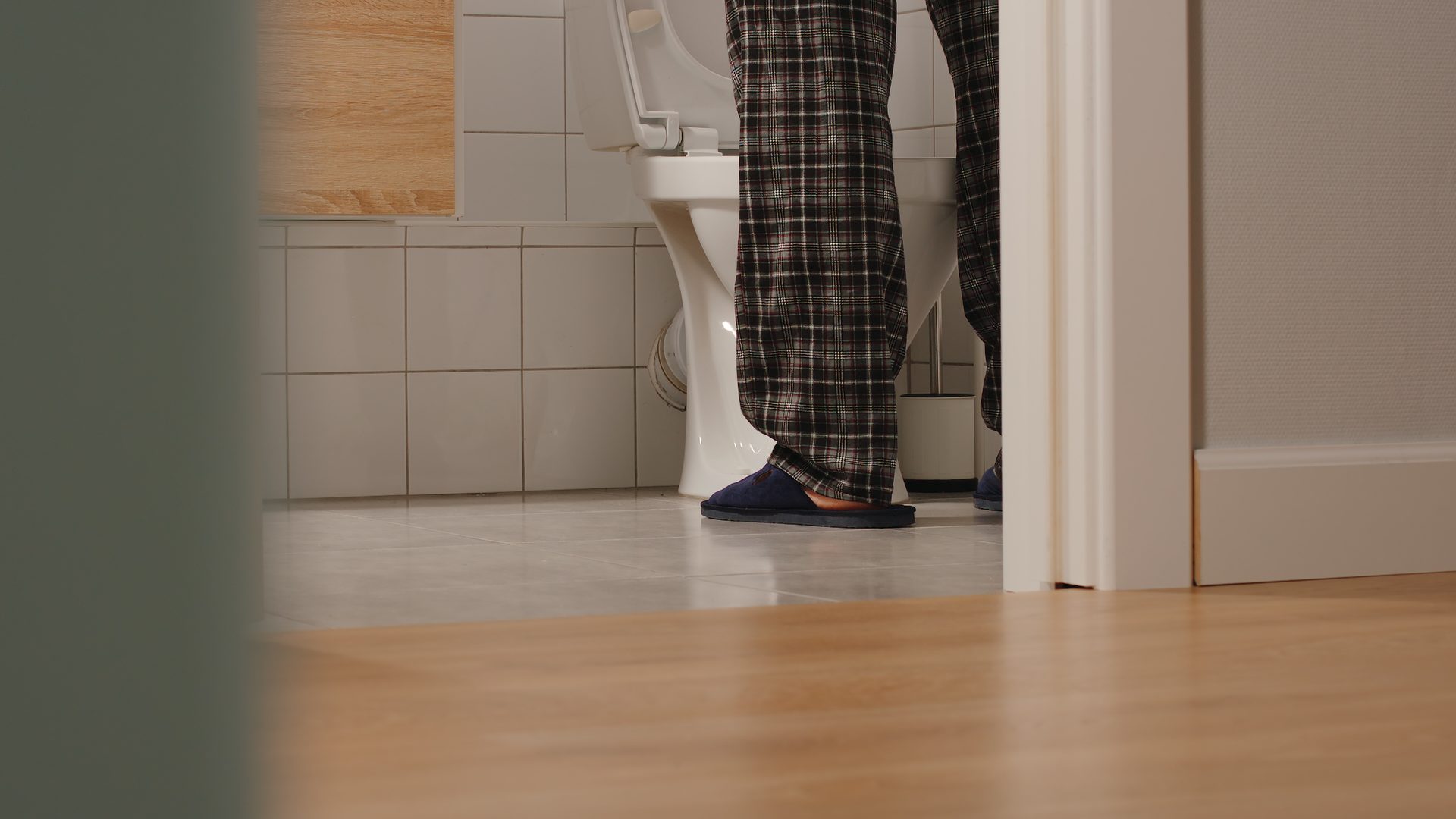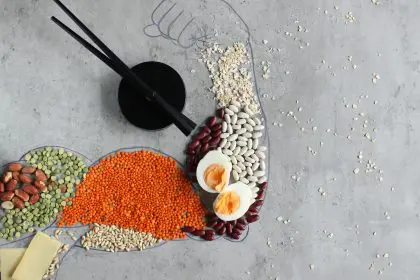Waking up multiple times during the night to use the bathroom disrupts sleep quality and affects millions of people worldwide. This condition, medically known as nocturia, can stem from various underlying causes ranging from simple lifestyle factors to more complex medical conditions. Understanding the root causes and implementing targeted solutions can dramatically improve sleep quality and overall well-being.
The impact of frequent nighttime urination extends far beyond simple inconvenience, affecting energy levels, cognitive function, and emotional health throughout the following day. Poor sleep quality from repeated interruptions can lead to daytime fatigue, reduced productivity, and increased risk of accidents. Addressing this issue becomes crucial for maintaining optimal health and quality of life.
Most cases of nighttime urination can be improved through natural approaches that address underlying causes rather than merely masking symptoms. These strategies work by targeting the physiological processes that contribute to excessive nighttime urine production and bladder sensitivity. The key lies in identifying personal triggers and implementing comprehensive lifestyle modifications.
Understanding the mechanics of nighttime urination
Normal kidney function typically reduces urine production during sleep hours through hormonal regulation that concentrates urine and decreases overall volume. When this natural rhythm becomes disrupted, the kidneys continue producing normal or elevated amounts of urine throughout the night. This disruption can result from various factors including fluid intake patterns, medication effects, and underlying health conditions.
Bladder capacity and sensitivity also influence nighttime urination frequency. Some individuals develop increased bladder sensitivity that creates urgency sensations even when the bladder contains relatively small volumes. This heightened sensitivity can result from inflammation, dietary irritants, or nervous system dysfunction that affects bladder control mechanisms.
Age-related changes affect both kidney function and bladder capacity, making nighttime urination more common as people get older. The natural aging process can reduce the bladder’s ability to hold large volumes while simultaneously affecting the hormonal systems that regulate nighttime urine production. Understanding these changes helps develop appropriate management strategies.
Fluid intake timing and management
- Strategic hydration scheduling involves consuming most daily fluid needs during morning and early afternoon hours while reducing intake in the evening. This approach ensures adequate hydration without overloading the kidneys during nighttime hours. Most adults should complete their primary fluid intake by mid-afternoon to allow sufficient processing time before bedtime.
- Evening fluid restrictions typically involve limiting intake to small sips for medication or mouth moisture after dinner. Complete fluid restriction isn’t necessary or healthy, but reducing volume to essential needs only can significantly decrease nighttime urine production. The timing of this restriction depends on individual metabolism and bladder emptying patterns.
- Quality over quantity in evening fluids means choosing water over diuretic beverages like caffeine or alcohol when evening intake becomes necessary. These substances can increase urine production beyond the actual fluid volume consumed, amplifying nighttime urination problems. Avoiding these bladder irritants in the evening hours often provides immediate improvement.
Dietary modifications that reduce nighttime trips
- Bladder irritant elimination involves identifying and avoiding foods that increase bladder sensitivity and urgency. Common irritants include spicy foods, citrus fruits, tomatoes, chocolate, and artificial sweeteners. These substances can trigger bladder contractions and increase urgency sensations that wake individuals during sleep hours.
- Sodium intake management affects fluid retention patterns that influence nighttime urine production. Excessive sodium consumption causes the body to retain fluid during the day, which gets processed and eliminated during nighttime hours when kidney function normalizes. Reducing sodium intake helps distribute urine production more evenly throughout the day.
- Timing of large meals impacts fluid processing and can affect nighttime urination patterns. Large meals consumed close to bedtime require significant fluid for digestion, potentially increasing overall fluid load during evening hours. Earlier dinner timing allows complete digestion and fluid processing before sleep.
Natural supplements and remedies
- Magnesium supplementation can help relax bladder muscles and reduce sensitivity that contributes to frequent urination. This mineral also supports better sleep quality, creating dual benefits for those experiencing nighttime urination. The recommended timing involves taking magnesium supplements 1-2 hours before bedtime for optimal absorption and effect.
- Pumpkin seed extract contains compounds that support bladder muscle tone and may reduce urinary urgency. Traditional use and emerging research suggest these seeds can help strengthen bladder control mechanisms naturally. Regular consumption through either whole seeds or standardized extracts may provide gradual improvement over several weeks.
- Corn silk tea has been used traditionally to support urinary tract health and may help reduce inflammation that contributes to bladder sensitivity. This gentle herbal remedy can be consumed during daytime hours to avoid adding evening fluid intake. The anti-inflammatory properties may help calm irritated bladder tissues.
Sleep positioning and environmental factors
- Elevating legs before bedtime helps redistribute fluid that accumulates in lower extremities during the day. This simple technique encourages fluid return to circulation where it can be processed by the kidneys before sleep begins. Spending 15-30 minutes with legs elevated above heart level can significantly reduce nighttime urine volume.
- Bedroom temperature optimization affects sleep quality and may influence urination patterns. Cooler sleeping environments typically promote deeper sleep that’s less likely to be disrupted by mild bladder sensations. Maintaining bedroom temperatures between 65-68 degrees Fahrenheit often provides optimal conditions for uninterrupted sleep.
- Compression stockings worn during daytime hours can prevent fluid accumulation in legs that gets redistributed and processed as urine during nighttime. This medical-grade solution works particularly well for individuals who spend long periods standing or sitting during the day. The compression should be appropriate for individual circulation needs.
Bladder training techniques
- Scheduled voiding involves urinating at regular intervals during daytime hours rather than waiting for urgency sensations. This technique helps retrain the bladder to hold larger volumes and reduces overall sensitivity. Starting with hourly intervals and gradually extending the time can improve bladder capacity over several weeks.
- Double voiding means urinating, waiting a few minutes, then attempting to urinate again to ensure complete bladder emptying. This technique helps prevent residual urine that can contribute to frequent urination episodes. Complete emptying reduces the likelihood of reaching capacity again shortly after initial urination.
- Pelvic floor exercises strengthen the muscles that support bladder control and can improve overall urinary function. These exercises involve contracting and releasing the muscles used to stop urine flow, performed in sets throughout the day. Consistent practice often improves bladder control within 6-8 weeks.
Stress management and relaxation
- Evening stress reduction helps calm the nervous system that can trigger bladder sensitivity and urgency. High stress levels can increase cortisol production that affects fluid balance and kidney function. Implementing relaxation techniques during evening hours promotes better sleep and may reduce urination frequency.
- Meditation and breathing exercises can help manage the anxiety that often develops around nighttime urination issues. This anxiety can create a cycle where worry about waking up actually increases the likelihood of sleep disruption. Regular meditation practice helps break this psychological component of the problem.
- Progressive muscle relaxation before bedtime helps reduce overall tension that may contribute to bladder sensitivity. This technique involves systematically tensing and releasing muscle groups throughout the body, promoting deeper relaxation that supports uninterrupted sleep. The practice often improves both sleep quality and urinary symptoms.
Timing and bathroom strategies
- Pre-sleep bathroom timing involves urinating immediately before getting into bed, even without strong urgency sensations. This ensures starting sleep with an empty bladder that takes longer to reach capacity. The timing should be the last activity before lying down to maximize the time until the next bathroom need.
- Night lighting optimization makes necessary bathroom trips safer and less disruptive to sleep cycles. Dim, warm lighting helps preserve melatonin production while providing adequate visibility. Bright overhead lights can signal the brain to wake fully, making return to sleep more difficult.
Lifestyle modifications for long-term improvement
Regular physical activity improves circulation and helps prevent fluid retention that contributes to nighttime urination. Exercise also supports better sleep quality and can help manage underlying health conditions that affect urinary function. The timing of exercise should allow adequate cool-down time before bedtime to avoid sleep disruption.
Weight management plays a crucial role in bladder function, as excess weight can put pressure on the bladder and affect normal urination patterns. Maintaining a healthy weight through balanced nutrition and regular activity often improves urinary symptoms naturally. Even modest weight loss can provide significant improvement for some individuals.
Sleep hygiene practices support the natural hormonal rhythms that regulate nighttime urine production. Consistent bedtime routines, appropriate sleep duration, and good sleep environment contribute to better overall urinary function. Quality sleep supports the hormonal systems that normally reduce nighttime urine production.
When natural approaches need medical support
While most cases of nighttime urination respond well to natural interventions, certain situations warrant medical evaluation. Sudden onset of frequent urination, associated pain or burning, blood in urine, or symptoms that don’t improve with lifestyle modifications may indicate underlying medical conditions requiring professional treatment.
The combination of multiple natural strategies typically provides better results than relying on single interventions. Individual responses vary, so experimenting with different approaches helps identify the most effective personal combination. Patience with natural methods allows time for physiological adaptations that provide lasting improvement.
Consistency in implementing these strategies is crucial for achieving lasting results. Most natural approaches require several weeks to show significant improvement as the body adapts to new patterns and habits. Tracking progress through sleep and urination logs can help identify which interventions provide the most benefit for individual situations.
















